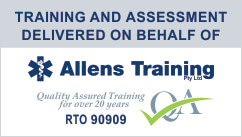PERFORM CPR VIDEO
HLTAID009 PROVIDE CARDIOPULMONARY RESUSCITATION (CPR)
Cardiopulmonary Resuscitation (CPR) is a crucial skill that can make the difference between life and death in an emergency. It involves a combination of chest compressions and rescue breaths, aiming to maintain blood circulation and oxygenation in a person whose heart has stopped beating. While you hope you never have to use it, being trained in CPR can be a life-saving skill in various situations. In this article, we’ll explore the reasons why you should consider CPR training and the benefits it offers.
Perform CPR
1. Save Lives: The most obvious benefit of CPR training is the ability to save lives. In a cardiac arrest situation, every minute without CPR decreases the chances of survival. With the knowledge and skills to perform effective CPR, you can keep a person’s blood circulation going until professional help arrives, significantly increasing their chances of recovery.
2. Immediate Response: When you witness a medical emergency, knowing how to perform CPR allows you to take immediate action. You won’t have to wait for paramedics to arrive, as you can start life-saving measures right away. This quick response can be crucial in time-sensitive situations.
3. Confidence in Emergencies: CPR training provides you with the confidence to handle emergencies effectively. Instead of feeling helpless in a crisis, you’ll have the skills and knowledge to take control of the situation and provide vital assistance.
4. Bystander CPR: Many cardiac arrest cases occur outside of hospitals, and often, the first responder is not a medical professional but a bystander. If more people are trained in CPR, the chances of receiving help in a timely manner increase. Bystander CPR can make a significant impact on survival rates.
5. Workplace Safety: CPR training is often a requirement in many workplaces to ensure the safety of employees and customers. It’s essential for businesses to have employees trained in CPR to respond to medical emergencies on their premises.
6. Community Contribution: Learning CPR is not just about self-preservation; it’s also a valuable contribution to your community. By being trained in CPR, you become an asset in emergencies, capable of helping friends, family, and even strangers in their time of need.
7. Enhanced First Aid Skills: CPR is often a component of comprehensive first aid training. When you learn CPR, you’re also equipped with other essential first aid skills that can prove beneficial in various situations, from choking to injuries.
8. Personal Empowerment: CPR training empowers you with the knowledge that you have the potential to make a difference in a life-threatening situation. It instills a sense of responsibility and readiness to act when required.
9. Skill Retention: Regular CPR training and certification renewal help maintain your skills and knowledge at a high level. This ensures that you’re up-to-date with the latest guidelines and techniques in resuscitation, including how to perform CPR.
10. Confidence in Travel: When you travel, especially with loved ones, knowing CPR provides peace of mind. You’ll be prepared for any unexpected medical emergencies that might arise during your journeys.
In conclusion, CPR training is not just a valuable skill; it’s a social responsibility. By learning and maintaining CPR skills, you become a crucial link in the chain of survival during cardiac arrest and other life-threatening emergencies. The ability to save a life is a powerful gift, and CPR training is the key to unlocking that potential.
Book a course with on the Northern Beaches, Sydney.
